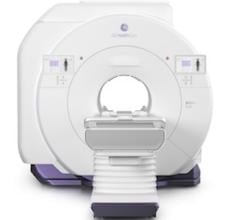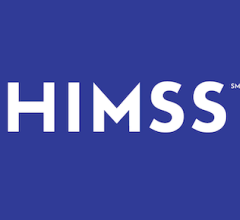
Getty Images
August 5, 2020 — The nation’s largest medical imaging associations are working together to develop the new Medical Imaging and Data Resource Center (MIDRC), an open-source database with medical images from tens of thousands of coronavirus (COVID-19) patients. The MIDRC will help doctors better understand, diagnose, monitor and treat COVID-19.
The National Institute of Biomedical Imaging and Bioengineering (NIBIB) at the National Institutes of Health (NIH) is funding the effort through a contract to Maryellen Giger, Ph.D., of the University of Chicago, which will host the MIDRC.
The MIDRC effort is co-led by the three medical imaging associations with Etta Pisano, M.D., and Michael Tilkin, MS, from the American College of Radiology (ACR), Curtis Langlotz, M.D., Ph.D., and Adam Flanders, M.D., representing the Radiological Society of North America (RSNA), and Maryellen Giger, Ph.D., and Paul Kinahan, Ph.D., representing the American Association of Physicists in Medicine (AAPM).
“The MIDRC database will provide a critical tool to help the medical imaging community, doctors and scientists better understand COVID-19 and its biological effects on humans. This knowledge, and the technological advancements the registry can enable, will ultimately help providers save lives,” said Etta Pisano, M.D., ACR chief research officer.
Medical imaging helps radiologists detect, diagnose and monitor disease. However, many unanswered questions remain about how imaging could be deployed against COVID-19. For example, artificial intelligence (AI) algorithms could help radiologists better prioritize and analyze scans. But thousands of images must be collected and annotated to train these algorithms. The MIDRC will bring together engineers, physicians and scientists to collect and organize the data to answer these crucial questions.
“The RSNA is pleased to collaborate on this vital resource for COVID-19 research. This dedicated team of research scientists, engineers and imaging professionals will produce new tools for the detection, diagnosis and prognosis of COVID-19 by aggregating massive amounts of imaging and other clinical data from COVID-19 patients. We look forward to linkages with other national data repositories to enable a comprehensive analysis of COVID-19 disease and its imaging manifestations,” said RSNA Board Liaison for Information Technology and Annual Meeting Curtis Langlotz, M.D., Ph.D., of Stanford University.
Funded under the National Institutes of Health’s special emergency COVID-19 process, the MIDRC will create an open access platform to collect, annotate, store and share COVID-related medical images.
The MIDRC will soon leverage existing data collection efforts to upload more than 10,000 COVID-19 thoracic radiographs and CT images, including many from the ACR COVID-19 Imaging Research Registry and the RSNA International COVID-19 Open Radiology Database (RICORD). This will allow researchers worldwide to access a wealth of images and clinical data to answer COVID-19 clinical and logistical questions.
“Access to this unprecedented resource will soon fuel expedited AI research to provide better diagnosis, new treatments and more-effective monitoring to guard against COVID-19 resurgence. This is a significant step in the effort against COVID-19,” said Maryellen Giger, Ph.D., of the University of Chicago; principal investigator of the NIBIB MIDRC contract and chair of the AAPM Data Science Committee.
The MIDRC will include five infrastructure development projects and oversee twelve research projects, including approximately 20 university labs, in support of solutions to the COVID-19 pandemic. The MIDRC will initially focus on COVID-19 but will work to expand services to provide imaging data and AI pipelines to aid the fight against other diseases.
“COVID-19 is our immediate target, but the MIDRC will ultimately enable the medical and scientific communities to mobilize images and data for work against other existing diseases and future healthcare threats,” said Paul Kinahan, Ph.D., of the University of Washington and chair of the AAPM Research Committee.
For more information: www.rsna.org


 February 20, 2026
February 20, 2026 









